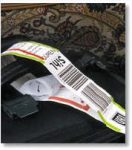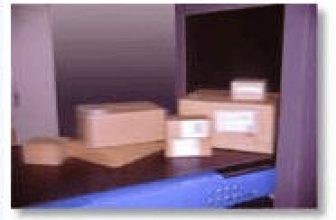
Air parcel identification
[ad_1]
Correspondence management between airplane passengers and consigned packages
—-For the aviation industry, millions of passengers and checked luggage are handled every day, and they are delivered to their destinations safely and on time. Tag-it? electronic tags are applied to the tracking and management of air parcels to ensure that airlines can track, manage and confirm both passengers and checked baggage, and ensure that passengers and checked baggage arrive at their destination safely on time. The Tag-it electronic label system can be simply integrated into the existing luggage tags, check-in printers and luggage sorting equipment. The system can automatically scan baggage regardless of the direction of the baggage and whether it is stacked.
—-The field test proves that the RFID system is safer and more reliable than the existing barcode system. The reasons why RFID smart tags are more suitable for the aviation industry include:
- It can be easily connected to the existing departure control system (DCS) and baggage package management system (BRS), and can be combined with the existing barcode system
- Increased data storage capacity without increasing the size of existing labels
- You can carry some key information in the package raw material information (BSM), so that you can perform related operations on the package without going through the central database
- Can be easily integrated into existing package label printers without adding additional equipment
- The use of electronic tags can save some additional equipment costs during the transportation process
example 
British Airways has achieved good results after fully adopting baggage tags
—-In 1999, British Airways fully adopted Tag-it smart tags to test 75,000 packages on the routes from Heathrow Airport to Manchester Airport and Munich Airport in Germany. Manufacturers that cooperate with TI at the same time include: Ultra Electronics, IER, Genicom and Sihl.
—-The test fully proved the effectiveness of the Tag-it smart label system in the identification and tracking management of packages in the package classification system. In order to promote the technology, British Airways disclosed all test data to other airlines and international standards organizations.
—-Through this test, the International Air Transport Association (IATA) voted to formally pass the 13.56 MHz RFID ISO/IEC 15693 standard, and recommended this standard as a standard for electronic identification of passenger luggage packages.
(RFID World Net Note: The International Air Transport Association (IATA) has formulated a global standard for RFID baggage tags, paving the way for airports and airlines to use RFID to manage baggage. At the IATA Joint Passenger Service Conference held in Geneva, IATA member companies This standard was approved unanimously. The new standard RP1740c uses a frequency of 850MHz-950MHz, also known as ultra-high frequency UHF, which is the band and power permitted by various countries. The air interface protocol adopted is ISO-18000-6-C, which It is an open standard that specifies the method for the reader to talk to the tag and the method for the tag answer.)
[ad_2]




